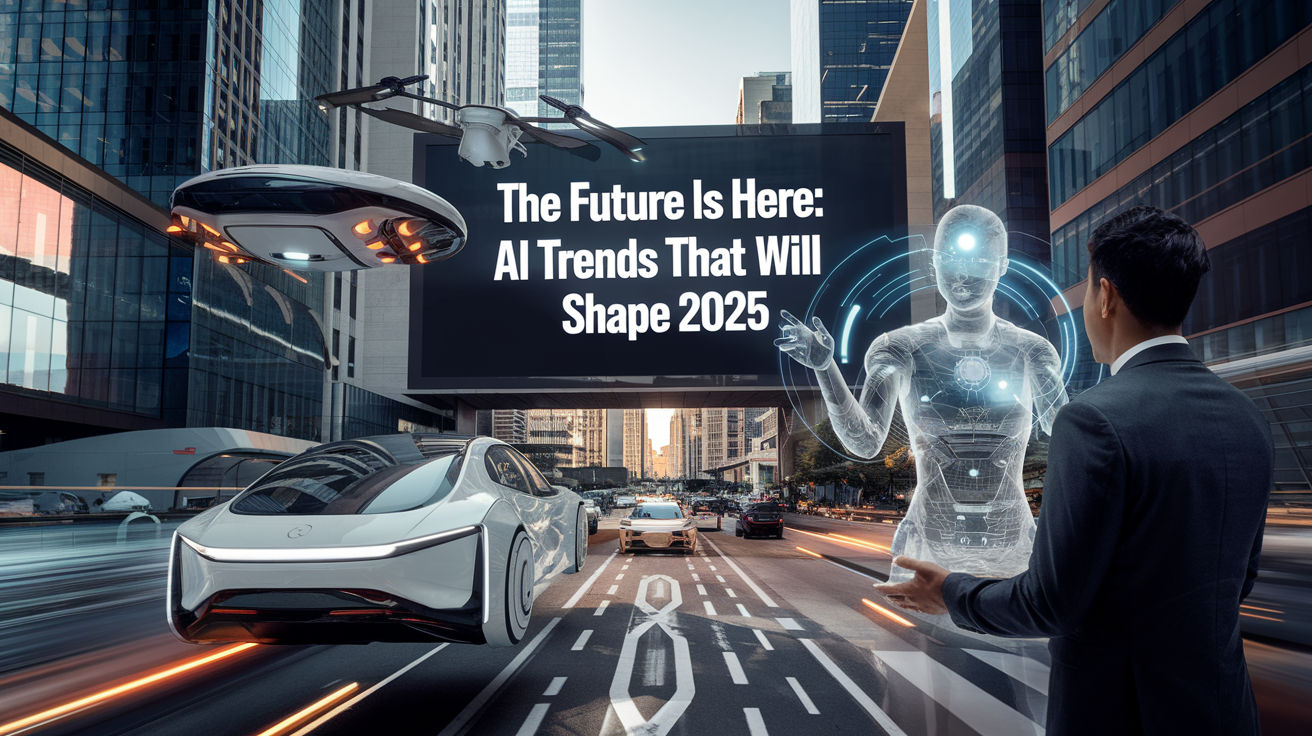The Managing Director of NoobLabs AI at the NextTech Summit
August 30, 2023

As we approach 2025, the artificial intelligence landscape is undergoing a profound transformation that promises to reshape how businesses operate and how we interact with technology. The coming year marks a pivotal moment in AI evolution, with autonomous AI agents taking center stage. The concept of AI agents is evolving far beyond simple chatbots and automated assistants. In 2025, we’ll witness the emergence of truly autonomous agents capable of making complex decisions and handling sophisticated tasks with minimal human oversight. These AI agents will become integral members of organizational teams, working alongside human employees in what industry leaders are calling “cyborg companies.” This shift represents more than just automation; it’s a fundamental change in how businesses operate, with AI agents coordinating among themselves to manage entire business processes, from customer service to supply chain management.
Perhaps the most significant shift in the AI landscape is the growing prominence of Small Language Models. While giants like GPT-4 and Claude dominated the early 2020s, 2025 will see a surge in smaller, more efficient models designed for specific tasks and industries. These SLMs offer compelling advantages: they require less computational power, operate with greater speed, and can be deployed on-premise, addressing the privacy concerns that have long plagued cloud-based solutions. For businesses, this means more cost-effective and practical AI implementations that deliver focused results without the overhead of larger, general-purpose models.
The enterprise landscape is experiencing a dramatic transformation as AI technology becomes increasingly democratized, making sophisticated capabilities accessible to organizations of all sizes. This democratization isn’t just about accessibility; it’s about practicality and efficiency. Companies are moving away from the “bigger is better” mentality of early AI adoption, instead focusing on targeted solutions that address specific business needs. Industries from healthcare to manufacturing are developing specialized AI applications that leverage domain expertise while maintaining operational efficiency.
Privacy and security considerations are driving innovation in unexpected ways. As organizations grapple with data protection regulations and growing privacy concerns, AI systems are evolving to incorporate privacy-preserving techniques at their core. This isn’t just about compliance; it’s about building trust in AI systems. The industry is moving towards more transparent and accountable AI, with new frameworks emerging to ensure ethical deployment and fair decision-making processes.
The human-AI interface is becoming more sophisticated and natural. The interaction between humans and AI systems is evolving beyond simple command-and-response patterns to more collaborative and intuitive exchanges. This evolution is crucial for workplace adoption, where the success of AI integration depends heavily on how comfortably humans can work alongside their digital counterparts. Organizations are investing in training programs that prepare their workforce not just to use AI tools, but to effectively collaborate with AI systems in complex problem-solving scenarios.
Environmental consciousness is driving a new wave of innovation in AI development. The focus on sustainability isn’t just about environmental responsibility; it’s about creating AI solutions that are viable and maintainable in the long term. As organizations become more conscious of their environmental impact, the efficiency of SLMs and the reduced computational requirements of newer AI systems will become increasingly attractive.
As we enter 2025, the AI industry is maturing from its experimental phase into an era of practical, efficient, and responsible implementation. The combination of autonomous agents, efficient models, and enhanced infrastructure will create new opportunities for innovation while addressing the challenges of scalability and sustainability. The future of AI is no longer about pushing the boundaries of what’s possible; it’s about refining and implementing what’s valuable.
Looking ahead, the key to success in 2025’s AI landscape will lie in finding the right balance between innovation and practicality. Organizations need to move beyond the hype of AI capabilities and focus on creating real value through thoughtful implementation. As we move into 2025, the focus will be on creating AI solutions that are not just powerful, but practical, ethical, and sustainable. This evolution represents a new chapter in the AI story, one where technology and human needs align more closely than ever before.
Copyright NoobLabs AI All Rights Reserved